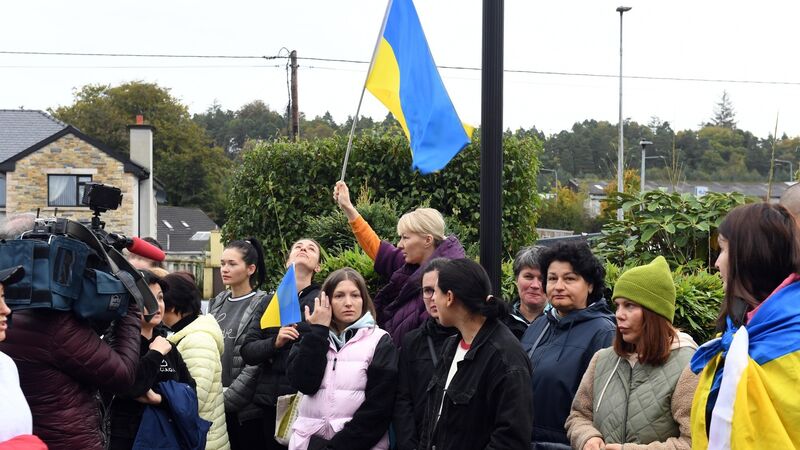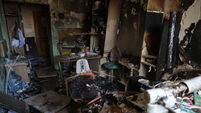Mick Clifford: Is compassion creaking under pressure?

Ukranian supporters wait anxiously prior to the announcement on Wednesday morning they would be allowed stay in Killarney. Picture: Don MacMonagle
The controversy over the now-abandoned plan to move Ukrainian refugees out of Killarney tells us a few things about the pressure points in society right now.
It reveals a sense of decency that has informed attitudes in this country toward those fleeing Putin’s terrible war.
















